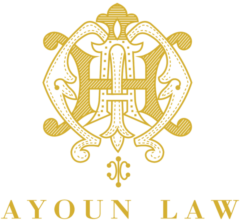Navigate the legal landscape in Ontario! Explore options from legal aid to pro bono services for informed decisions.

Understanding Your Options: Ontario Legal Expert Comparison
Understanding Legal Experts in Ontario
Choosing the right legal expert in Ontario can be a daunting task. With various options available, it’s essential to understand the differences between them, especially when it comes to their roles, specializations, and services. Here’s a closer look at key comparisons in the legal field in Ontario.
Lawyer vs. Paralegal in Ontario
In Ontario, lawyers and paralegals provide different levels of service and expertise. Lawyers can represent clients in court, provide legal advice, and handle more complex legal matters. Paralegals, while also trained professionals, generally assist in lower-stakes legal issues such as small claims court or administrative hearings.
| Aspect | Lawyer | Paralegal |
|---|---|---|
| Education | Law degree and licensing | Paralegal diploma or training |
| Court Access | Can represent in all courts | Can represent in certain settings |
| Legal Advice | Offers comprehensive legal advice | Limited legal advice allowed |
Family Lawyer vs. Divorce Lawyer in Ontario
While the terms “family lawyer” and “divorce lawyer” are often used interchangeably, they can denote different focuses. A family lawyer deals with all family law issues, including child custody and support, while a divorce lawyer specializes specifically in the process of divorce.
| Focus | Family Lawyer | Divorce Lawyer |
|---|---|---|
| General Family Issues | Yes | No |
| Divorce Specific | No | Yes |
Real Estate Lawyer vs. Notary in Ontario
In real estate transactions, a real estate lawyer and a notary serve different roles. A real estate lawyer handles legal issues related to property transactions, while a notary primarily authenticates documents.
| Role | Real Estate Lawyer | Notary |
|---|---|---|
| Transactions | Yes | Document authentication only |
| Legal Advice | Comprehensive legal advice | Limited to notarization services |
Immigration Consultant vs. Immigration Lawyer in Ontario
Immigration consultants can assist with visa applications, but only immigration lawyers can provide legal representation in hearings. Knowing these roles will help you choose the right professional for your immigration needs.
| Aspect | Immigration Consultant | Immigration Lawyer |
|---|---|---|
| Legal Representation | No | Yes |
| Consultations | Yes | Yes |
Big Law Firm vs. Small Law Firm in Ontario
The size of a law firm can influence your legal experience. Larger firms may have more resources and diverse expertise, but smaller firms often provide personalized attention and can be more flexible.
| Aspect | Big Law Firm | Small Law Firm |
|---|---|---|
| Resources | Extensive | Limited |
| Client Interaction | Less personal | More personal |
Boutique Law Firm vs. Large Law Firm in Ontario
Boutique firms typically specialize in specific areas of law, offering deep expertise, while larger firms offer a broader range of services. Your choice will depend on the specific legal needs.
| Aspect | Boutique Law Firm | Large Law Firm |
|---|---|---|
| Specialization | High | Varied |
| Service Range | Limited | Extensive |
Contingency Fee vs. Hourly Rate Lawyer in Ontario
Understanding how attorneys charge for their services can impact your decision. A contingency fee implies the lawyer is paid only if you win the case, while an hourly rate involves payment for the time spent working on your case.
| Payment Structure | Contingency Fee | Hourly Rate |
|---|---|---|
| Payment Condition | Only if you win | Pay for time regardless of outcome |
| Risk | Lower for the client | Higher, depending on case length |
Flat Fee vs. Hourly Lawyer in Ontario
A flat fee arrangement provides predictable costs for specific services, while hourly rates can lead to variable charges based on the time spent on your case.
| Payment Structure | Flat Fee | Hourly Rate |
|---|---|---|
| Cost Predictability | High | Low, varies based on work |
| Service Scope | Specific services | General services |
Mediation vs. Court Divorce in Ontario
Mediation is often a less adversarial divorce process, allowing you to resolve issues amicably. Court divorce can be more complex and confrontational.
| Process | Mediation | Court Divorce |
|---|---|---|
| Atmosphere | Collaborative | Adversarial |
| Cost | Typically lower | Usually higher |
Litigation vs. Arbitration in Ontario
Litigation involves traditional court processes, while arbitration is a private dispute resolution method. Both have distinct procedures and implications for resolution.
| Process | Litigation | Arbitration |
|---|---|---|
| Formality | High | Moderate |
| Outcome | Court’s decision | Decision by arbitrator |
Legal Aid vs. Private Lawyer in Ontario
Legal aid services provide assistance for individuals with limited financial means, while private lawyers offer services for a fee, potentially ensuring a wider range of legal options.
| Service | Legal Aid | Private Lawyer |
|---|---|---|
| Financial Requirements | Means-tested | Open to all |
| Service Availability | Limited | Extensive |
Pro Bono Lawyer vs. Paid Lawyer in Ontario
Pro bono services are provided free of charge for clients who cannot afford representation, while paid lawyers charge a fee based on their services provided.
| Service | Pro Bono Lawyer | Paid Lawyer |
|---|---|---|
| Cost | Free | Fees apply |
| Accessibility | Limited | Based on client’s financial ability |
Understanding these distinctions will guide you in selecting the right legal expert for your needs. Utilize resources for a detailed comparison of Ontario legal representation options to further inform your decision.
Factors to Consider When Choosing a Legal Expert
Selecting the right legal expert is essential for navigating legal challenges effectively. You should consider factors such as service type and specialization, firm size, cost structure, and your preferences for the legal process.
Service Type and Specialization
Each area of law requires specific knowledge and skills. Understanding the type of legal service you need will help you decide between various professionals. For instance, you may need a family lawyer for custody issues or a real estate lawyer for property transactions. Below is a table comparing common law services:
| Type of Service | Description | Specialization |
|---|---|---|
| Family Lawyer | Handles divorce, custody, and child support | Family law |
| Real Estate Lawyer | Manages property transactions and disputes | Real estate law |
| Immigration Lawyer | Guides clients through immigration processes | Immigration law |
| Personal Injury Lawyer | Advocates for individuals injured due to negligence | Personal injury law |
To explore various options available, consider visiting our article on ontario legal representation options.
Firm Size
The size of the law firm can affect the type of service and attention you receive. Large law firms often have more resources and specialists in various fields, while small or boutique firms may offer personalized service.
| Firm Size | Advantages | Disadvantages |
|---|---|---|
| Big Law Firm | Extensive resources, broad expertise | May lack personal touch |
| Small Law Firm | Personalized attention | Limited specialization |
| Boutique Firm | Specialized services | Smaller network of resources |
Your needs should dictate the firm size you consider. For a deeper understanding of firm sizes, read our article on ontario legal expert consultation.
Cost Structure
Different legal experts have various pricing models, including hourly rates, flat fees, contingency fees, and more. It’s important to understand the cost structure to ensure it fits your budget. Below is a comparison of common fee structures:
| Fee Structure | Description |
|---|---|
| Hourly Rate | You pay for the actual time spent by the lawyer or paralegal |
| Flat Fee | A single fee for a specific service |
| Contingency Fee | Payment only if you win the case; typically a percentage of the settlement |
Understanding these costs can help you make an informed decision. Further insights on costs can be found in our article on ontario lawyer services comparison.
Legal Process Preferences
Different legal issues may require different approaches. For instance, someone might prefer mediation for a divorce, while others may opt for litigation. It is important to reflect on your preferences and needs in the legal process, as they will affect your choice of expert.
| Legal Process | Key Characteristics |
|---|---|
| Mediation | Involves a neutral third party to help resolve disputes without court |
| Litigation | Formal legal action taken in court to resolve disputes |
| Arbitration | Private resolution through a neutral third party, but legally binding |
Your comfort with these processes should guide your choice of legal expert. To learn more about the contrast between processes, check our article on litigation vs arbitration ontario.
By carefully considering these factors, you will be better equipped to make a choice that aligns with your legal needs in Ontario.




Comments (0)